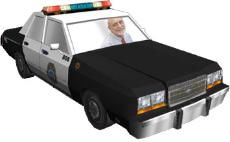Dear Professor
October 3, 2007
Dear Professor,
Last week, I was out celebrating at the bars for my buddy’s birthday. We were having a great time but I guess we got a little too excited on the way back from the bar. On the walk back home, I ended up getting cited for public intoxication. I spent the night in jail but now face hefty fines, a court date and a stained record.
What are my options now? Do I just pay the fines and take the heat? What will end up on my record and how long will it stay? Is there any way to reverse what I’ve done?
Sincerely,
Guilty Gus
One does have options, but, unfortunately, in situations like this they are not particularly good. To be arrested there has to be probable cause for the officer to take the individual into custody. A breathalyzer test or other indicators of intoxication are generally used by officers to determine if one is inappropriate in their drinking behavior.
If you are arrested and found guilty, you will have been convicted of a crime. For some vocations, the consequence can be devastating. Driving under the influence will generally bode very badly for those who would like to work in the enforcement area of the criminal justice system. A police chief in the area informed me that if one has a DUI on his or her record there will be at least a seven-year wait before any enforcement agency would consider an individual as a candidate for a job. My guess is that a public-intox charge would have the same impact.
I might also point out that if the charges are dropped and one is not technically guilty of a crime, that doesn’t mean that the event might not cause the individual problems. For example, when a person is a candidate for a job often the police department in the hometown, or town where the individual went to college, is contacted about any arrest that the candidate may have experienced. Police departments often will report the arrest even if no conviction has occurred.
For a person to take a public intoxication charge to court rarely ends with a disposition favorable to the accused. What it does do is compound the problem because of the cost associated with paying a lawyer and the court processing fees. My immediate advice to students stopped for public intoxication has to do with how you respond to the officer making the stop. Show respect to the officer and be contrite. It is far more likely that you will be dealt with informally–no guarantee–if you so behave.
Fred Jones












